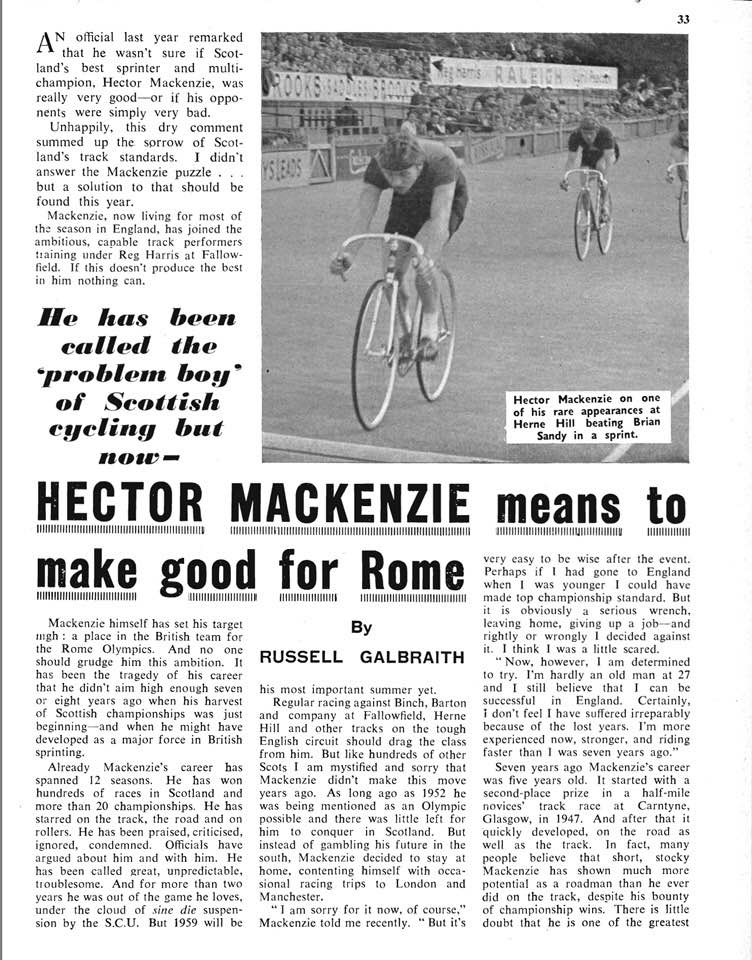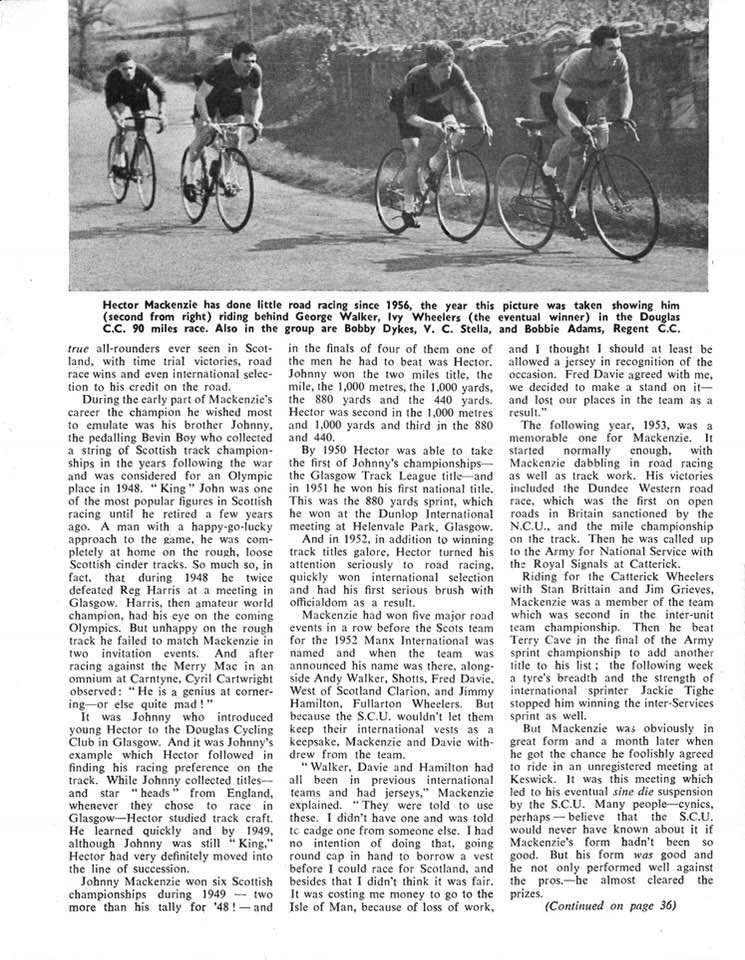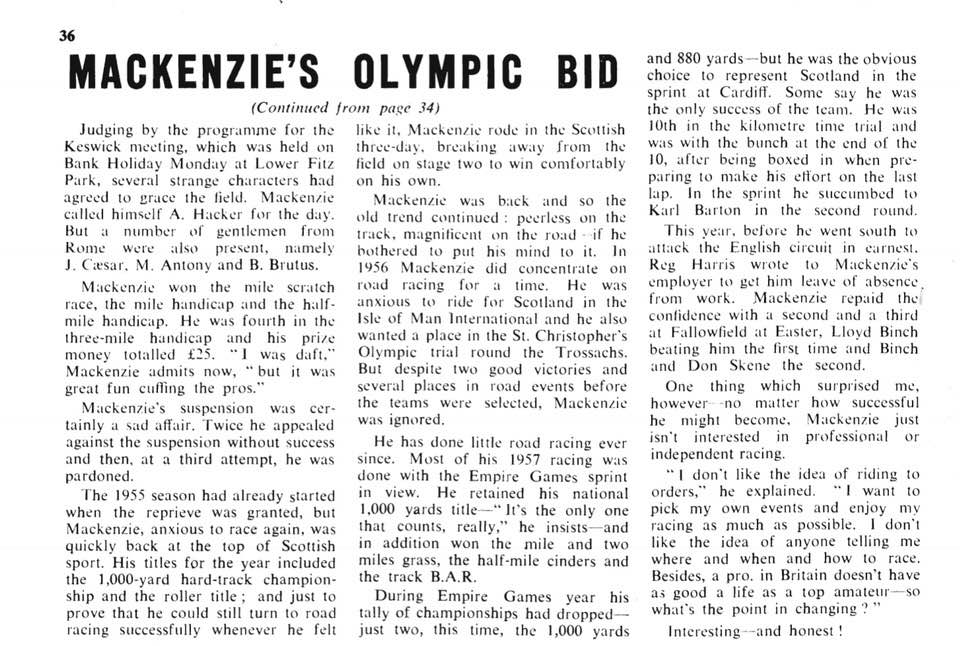Recently Scottish Cycling lost one of the Legends; Hector Mackenzie was a multiple Scottish champion on hard track, cinders, grass and rollers – and a roadman of some quality.
He’s a man I remember hearing all manner of tales about when I was a young ‘clubby boy’ and Hector hadn’t long quit; 1969 was when he last raced, I joined the late, lamented Kirkcaldy & District CC in 1971.
I heard he was a hardman in an era of hardmen, very difficult to out-sprint at the end of a road race, Scottish Sprint Champion ten times – it was actually 11 times – Scottish Milk Race Stage winner and a wee bit of a controversial character.
With him being before my time I had to enlist the services of men who were his contemporaries towards the end of his career.
But here at VeloVeritas we felt we couldn’t allow his passing to be unremarked upon.
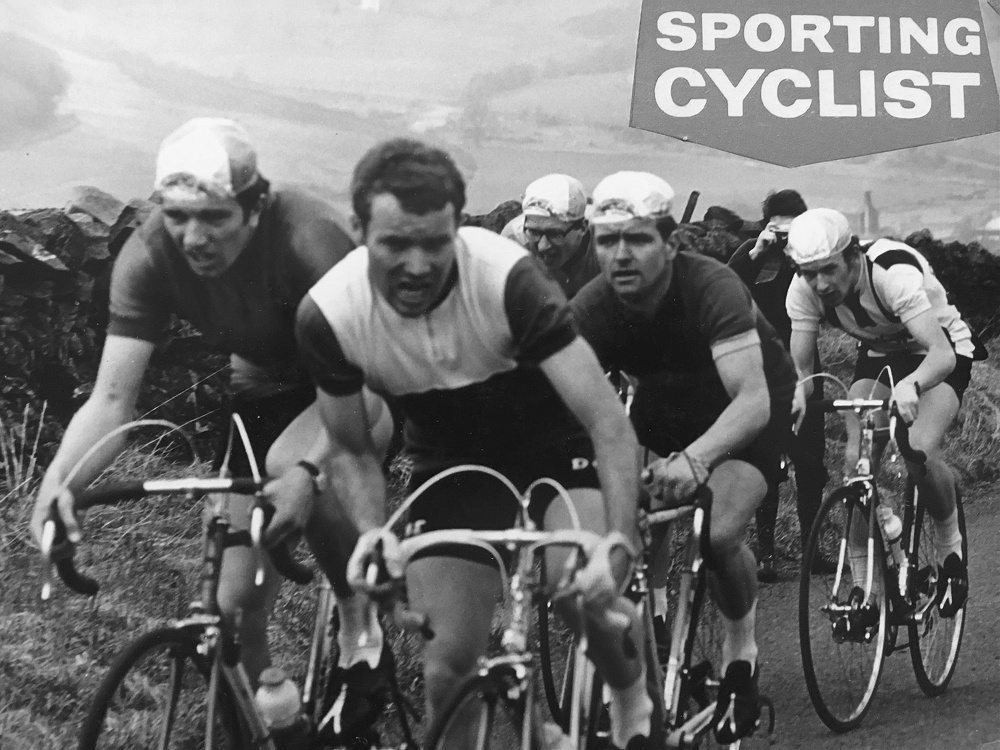
As always, Harry Tweed was very helpful and Tommy Banks sent me an excellent piece by the noted journalist, Russell Galbraith, which appeared in the long defunct ‘Sporting Cyclist’ magazine in 1959.
I’ve borrowed from Mr. Galbraith’s piece and am also in debt to Tommy for his observations and contributions.
I started off by checking one of my usual palmares websites for Mackenzie’s results, the listings were far from exhaustive – a win in the Dundee Western Road race in 1953, a Tour of Scotland stage win in 1955 (the year I was born), second to Norrie Drummond in the Glasgow Centre Road Race in 1963, a win in the famous Spring Grand Prix in East Lothian along with two podium places and a fourth overall in the 1968 Girvan Easter stage race.
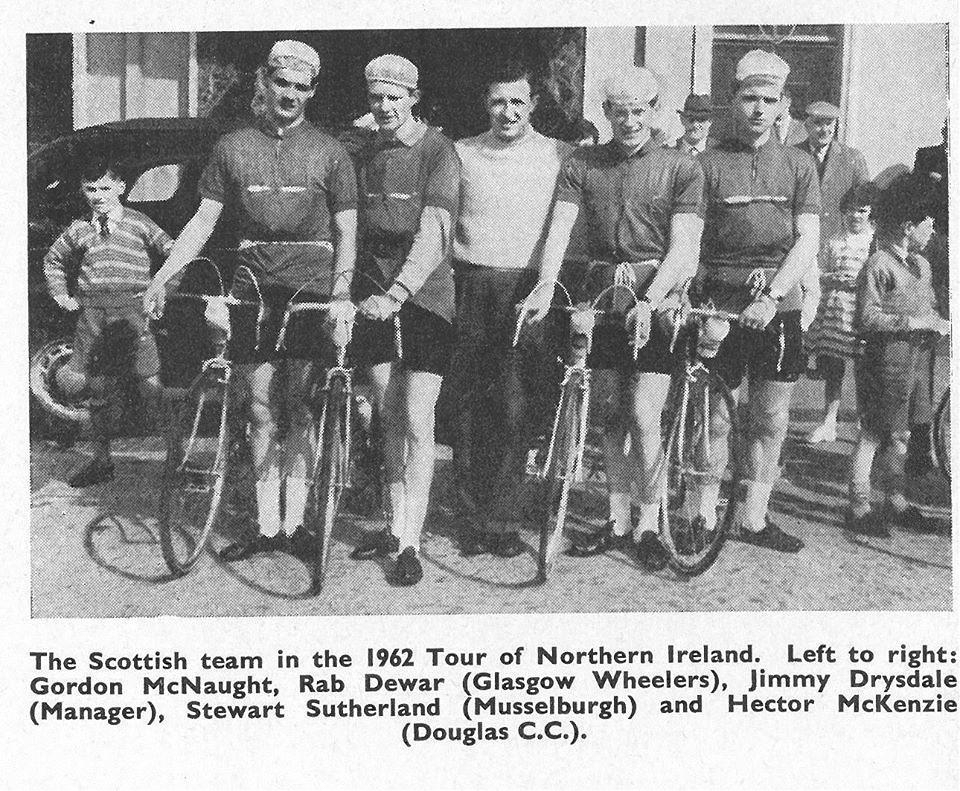
My next port of call was the record of past Scottish track champions, painstakingly compiled by Jock Shaw a few years ago.
Mackenzie’s roll of honour reads like this:
- Scottish sprint champion 11 times between 1955 and 1969
- Scottish Track Best All Rounder twice
- Scottish 500 yards Cinder Champion once
- Scottish 800 yards Cinder Champion twice [interestingly, a race won three times previously by his brother Johnny
- Scottish 1000 yard Cinder Champion four times [again, brother Johnny also won this event on four occasions]
- Scottish one mile Cinders once Champion [Johnny won this one twice]
- Scottish two miles Cinders Champion once
- Scottish one mile Grass Track Champion once
- Scottish two miles Grass Track Champion once
- Scottish three miles Grass Track Champion once.
That’s 25 Scottish titles – and there were Scottish roller racing titles to boot.
Early in the 1959 article Galbraith tell us that Mackenzie is regarded by many as, ‘the problem boy’ of Scottish cycling and has been ‘praised, criticised, ignored and condemned’ by Scottish officialdom.
That year he had moved down to England to be under the tutelage of former multiple World Professional Sprint Champion, Reg Harris at Manchester.
A long overdue move, felt Galbraith; Mackenzie should have exposed himself to the higher level of competition in England much sooner.
The sprinter’s goal was 1960 Olympic selection, something that had been talked about for him as early as 1952.
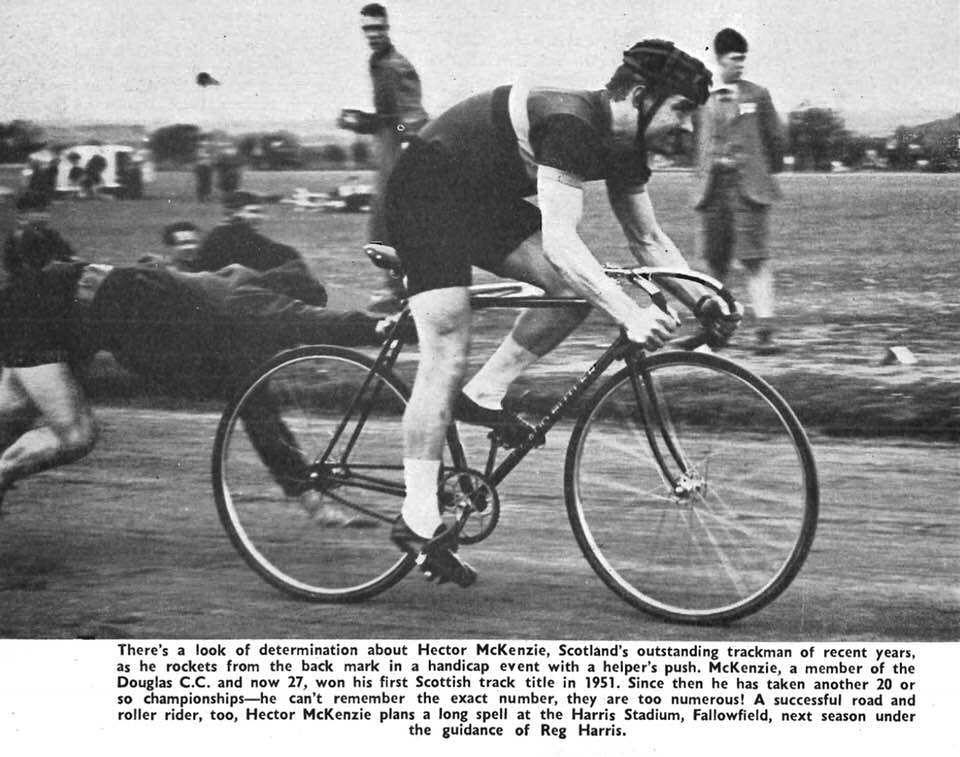
Galbraith goes back to Carntyne, Glasgow in 1947 where Mackenzie scored his first success – second in a half mile novice’s handicap.
Initially Hector was in the shadow of big brother Johnny who won four Scottish track title in 1948 and six in 1949 – Mackenzie senior was a less intense character then his little brother and noted for his relaxed attitude.
But Mackenzie junior soon became a Scottish track star in his own right.
But not only that, he could ride and win on the road, taking five straight victories in season ’52 and being selected for the Scottish team for the Manx International, but in just one of many run-ins with officialdom – this one over national jersey issue – he never made the crossing of the Irish Sea.
In 1953 national service was still in effect in the UK and Mackenzie found himself at Catterick Army Camp, where he raced for the Royal Signals team.
Being in the north of England lead him into another brush with the Scottish Cyclists’ Union (SCU) which lead to a life-time ban for racing grass track against ‘unregistered professionals’ at Keswick Games.
He lost two seasons before he could get his licence back and turned to the road with some success, however the SCU selectors didn’t take notice of his results and he gravitated back towards the track.
He rode the 1958 Empire Games in Cardiff for Scotland finishing 10th in the Kilometre, going out to English sprinter Karl Barton in the Sprint and getting boxed-in, in the finish sprint of the 10 Mile Scratch.
Galbraith’s 1959 article tells us that Mackenzie was trying to make the GB team for the Rome Olympics, something he failed to do.
I trawled through my collection of 1960’s Cycling & Mopeds in search of more interviews with the man but I could find little.
In May 1963 he won the 75 mile Chryston Road Race and the 70 mile Stamperland Road Race in a year where he took seven road wins and his seventh sprint title.
In 1964 he won Stage One of the Alloa Rally Three Stage Race and finished third overall to Billy Bilsland.
I asked Tommy if he could fill in some of the blanks for me?
“Hector did well in England but never won a medal in any British championship, coming closest in the 10 mile which was won by Don Skene.
“He was not shortlisted for the Olympics and only raced on the track once more in England, without success.
“As far as ‘home’ track racing was concerned, he dominated in Scotland after he served his suspension until 1959 but when he concentrated on road racing in 1960, he seldom rode on the track.
“Typically only turning up at Dundee once a year to win the 1000 yard championship; riding in the Glasgow transport sports and the pre match event at the Scottish cup final and that was just about it.
“When Grangemouth stadium opened around 1966 there was a series of track meetings run and Hector rode a few of these.
“Also, round about then additional meetings were held at Dundee at which Hector appeared.
“Perhaps if there had been a good regular diet of hard track racing taking place in Scotland, as there was in England, Hector would have stuck to the track, instead of converting to road racing.
“Hector was a very classy rider but fell out with a lot of people – in my opinion he’s never fully received the recognition that was due to him.
“He last raced in 1969.”
Hector Mackenzie, sprinter, big finisher, rebel and Scottish Cycling Legend, rest in peace, sir.
* * *
